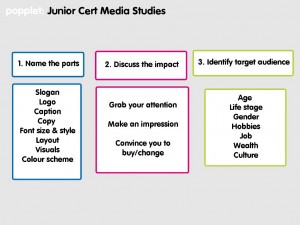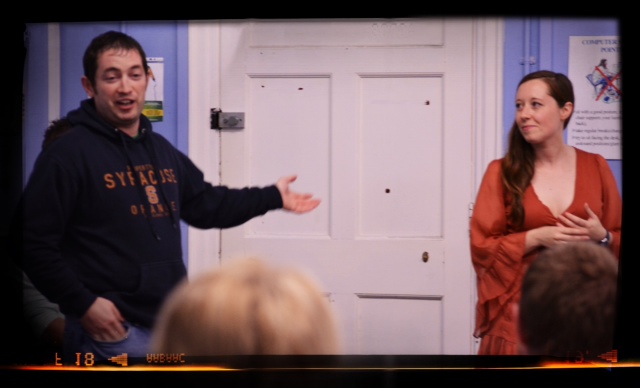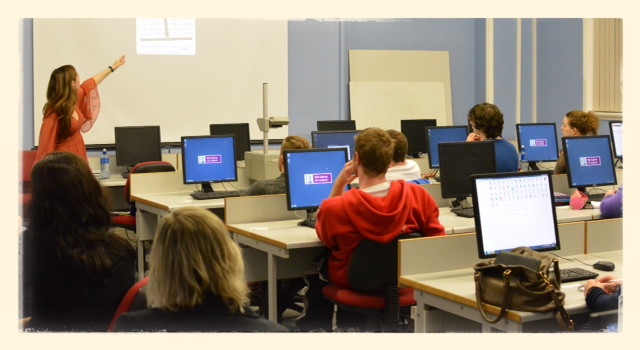
I love that if you type ‘jealousy” into wikipedia, it says “Green-Eyed Monster re-directs here“! This is the phrase Shakespeare used – and quite possibly coined – in Othello, to describe the destructive nature of jealousy.
Jealousy refers to the fear & anxiety we experience when we feel that something or someone we value risks being taken away from us. It used to be distinct from ‘envy’ (desiring what someone else has), but now the two meanings are inter-changeable.
So a jealous person wants to keep what’s theirs and to have what’s yours, but you’d better keep your hands off their stuff or they will lash out at you like a flaming minister of hell!

Othello is mainly concerned with sexual jealousy, which emerges when Iago convinces Othello that Desdemona has been unfaithful and is actively pursuing a sexual relationship with one “of her own clime, complexion and degree” – Cassio! However, we also witness Roderigo‘s jealousy & envy of Othello’s relationship with Desdemona; Iago‘s professional jealousy of Cassio; his jealousy of Desdemona & Othello’s happy marriage and suspicions that his wife Emilia has been unfaithful; and Bianca‘s jealousy provoked by Cassio’s neglect and her suspicion that he is secretly wooing another woman. You’ll notice I’ve used the word ‘suspicion’ a lot – that’s because 90% of the time, these characters have nothing to be jealous of and the wrongs they perceive exist only in their heads!
It doesn’t seem to matter whether the supposed source of a person’s jealous thoughts is real or fictional: Iago has every reason to be jealous of Cassio’s promotion, but it seems there is no logic to his sexual jealousy (he comments of Othello “it is thought that twixt my sheets he has done my office” & “I fear Cassio with my night cap too“). His wife Emilia later scoffs at his willingness to believe these rumours remarking “some such squire he was that turned your wit the seamy side out and made you to suspect me with the Moor“.
Various metaphors are used to capture the essence of jealousy – it is described as a poison, a monster, a provoker of madness and insomnia and a trap.
It is Iago who describes jealousy as a poison that consumes you, eating away at you and filling you with a passionate desire for revenge:
“I do suspect the lusty Moor
Hath leaped into my seat. The thought whereof
Doth, like a poisonous mineral, gnaw my inwards,
And nothing can or shall content my soul
Till I am evened with him, wife for wife.
Or, failing so, yet that I put the Moor
At least into a jealousy so strong
That judgment cannot cure“.
Interestingly, he sees it as an emotion which is immune to reason or logic, thus making it a wild and dangerous creature. In fact, he goes further, advising Othello:
Oh, beware, my lord, of jealousy!
It is the green-eyed monster which doth mock
The meat it feeds on.
Emilia, Iago’s wife, echoes this description of jealousy as a monster which feeds only on itself, growing bigger and stronger and spinning out of control completely. When Desdemona defends herself, saying “I never gave him cause” Emilia replies with an observation similar to what her husband stated previously, that jealousy is a fundamentally illogical emotion which morphs and grows without ever needing a real reason for existing:
“jealous souls will not be answer’d so;
They are not ever jealous for the cause,
But jealous for they are jealous: ’tis a monster
Begot upon itself, born on itself”.
This idea that little proof is necessary is woven into the plot of the play and skilfully exploited by Iago who realises that “trifles light as air are to the jealous confirmations strong as proofs of holy writ“.
Jealousy is also associated with madness and insomnia. Iago intends
“making [Othello] egregiously an ass
And practicing upon his peace and quiet
Even to madness”
and delights in the misery that Othello’s feelings of self-doubt, inadequacy and rejection will create:
“The Moor already changes with my poison:
Dangerous conceits are, in their natures, poisons.
Which at the first are scarce found to distaste,
But with a little act upon the blood
Burn like the mines of Sulphur. I did say so:
Look, where he comes!
Re-enter OTHELLO
Not poppy, nor mandragora,
Nor all the drowsy syrups of the world,
Shall ever medicine thee to that sweet sleep
Which thou owedst yesterday”.
Othello, on learning the truth, sees the jealous web of lies he was duped into believing as a trap: “Demand that demi-devil why he hath thus ensnared my soul and body?” but he never really takes responsibility for his actions, seeing the murder of Desdemona as an unfortunate but necessary punishment for her supposed betrayal of their marriage vows. I guess there are sadly still women in some parts of the world who get stoned to death for committing adultery, so we needn’t necessarily view it as an attitude from another era!
It’s interesting that both Othello and Desdemona see jealousy as a base emotion that is beneath them. Othello is amused at Iago warning him about the green-eyed monster jealousy, replying disbelievingly “think’st thou I’d make a life of jealousy?”. He sees Desdemona’s free spirited attitude as something to be proud of, not something that needs to be toned down:
Tis not to make me jealous
To say my wife is fair, feeds well, loves company,
Is free of speech, sings, plays and dances well;
Where virtue is, these are more virtuous“
Ultimately, if she enjoys herself when they’re in company and is the centre of attention, that’s something that will make him proud of being her man “for she had eyes and chose me“. Desdemona later agrees with this assessment of Othello, proudly stating “My noble Moor is true of mind and made of no such baseness as jealous creatures are”
There’s no doubt that jealousy is a destructive emotion, but it effects different characters in different ways. Iago, for example, admits that he’s prone to negative thoughts about those he envies:
“it is my nature’s plague
To spy into abuses, and oft my jealousy
Shapes faults that are not”
Yet from the very opening scene of the play, where Iago memorably describes his utter disgust that he lost out on promotion to an inexperienced theorist like Cassio (“mere prattle without practice is all his soldiership“), it’s clear that Iago will channel his jealousy into revenge: “I hate the Moor” “I follow him to serve my turn upon him. We cannot all be masters, nor all masters cannot be truly followed“. His jealousy is certainly linked to wounded pride, as he complains “I know my price, I am worth no worse a place“.
Othello, on the other hand, experiences a great deal of intense emotional suffering “Avaunt! Be gone! thous hast set me on the rack” he storms at Iago.”I had been happy if the general camp, pioneers and all, had tasted her sweet body, so I had nothing known. O! now, for ever, farewell the tranquil mind; farewell content! Farewell the plumed troop and the big wars“. He also becomes possessive, an emotion often provoked by jealousy: “I’d rather be a toad and live upon the vapour of a dungeon, than keep a corner in the thing that’s mine for other’s uses“. For Othello, once the seed of jealousy is planted, it creates pain before it creates a desire for revenge, and even then, Othello remains a reluctant avenger. He may claim “my heart is turned to stone…” but in the very next breath he proclaims “O! the world hath not a sweeter creature“. He kisses Desdemona when he enters the chamber to kill her; weeps at the prospect of killing her; attempts to save her immortal soul and immediately after killing her is filled with regret “O insupportable! O heavy hour!“. Jealousy causes him great suffering, leads him to destroy the best thing in his life, his relationship with his wife and when the foolishness of his suspicions are revealed, the guilt drives him to suicide. So I guess, even though jealousy also leads to Iago’s downfall, it is experienced as a much more painful and destructive emotion by Othello. It’s also frightening how much jealousy transforms his personality and behaviour. Even his language changes: “I’ll tear her all to pieces” “Impudent strumpet” “Are you not a whore?” “Oh that the slave had 40,000 lives, one is too poor, too weak for my revenge”.
Bianca is interesting because she’s the only character who confronts her jealousy head-on and immediately. Like Iago and Othello, her suspicions are baseless, in the sense that no-body is cheating on anybody in this play. However, her willingness to keep this emotion on the surface, to recognise it, articulate it and demand answer as to whether her jealousy is justified or baseless seems a much healthier way of dealing with this emotion than the underhanded schemes and murderous plots created by Iago and Othello.
The play also makes it clear that jealous people do very foolish things, particularly in the case of romantic and sexual jealousy. We don’t just see violence and rage, we also see profound stupidity. Take Roderigo, for example. He is jealous of Othello’s success in winning Desdemona’s heart, even though he himself has many times been rejected by her and has no hope of ever establishing any kind of emotional or sexual connection to her. Yet obsession, desire and jealousy make him behave recklessly and foolishly throughout the play: waking Brabantio in the middle of the night, encouraging him to send out a search party that almost causes a riot in the middle of the night; pouring his fortune into Iago’s hands in the hope that he’ll win Desdemona; moving to Cyprus on the promise that he’ll get to sleep with Desdemona somehow, even if it means raping her (?!? – this is Iago’s idea); picking a fight with Cassio – twice!; eventually attempting to murder Cassio and losing his life in the process! And all of this because he wants Desdemona and is jealous that any other man should have her!
The dramatic irony which permeates the entire play is explicitly evident in Shakespeare’s exploration of the theme of jealousy. It is ironic that almost all of the characters feel jealous about things that never actually happened – baseless jealousy for the most part provokes their outbursts.
So it’s clear that jealousy is presented by Shakespeare as a powerful and destructive emotion that devours those who allow it to dominate their lives. We get a frightening picture in this play of the extreme and illogical lengths people will go to, to get revenge on those they envy and those who arouse their jealousy through their fictional unfaithfulness.












